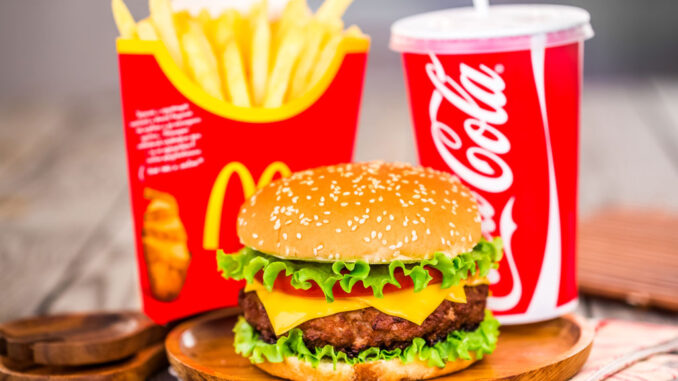
Under what the suit describes as a two-tiered system of Black and white franchisees, McDonald’s profited from Black business operators and a Black consumer base, but eventually Black franchisees failed because they had been sent on “financial suicide missions.”
“These allegations fly in the face of everything we stand for as an organization and as a partner to communities and small business owners around the world,” McDonald’s said in a statement to USA TODAY. “Not only do we categorically deny the allegations that these franchisees were unable to succeed because of any form of discrimination by McDonald’s, we are confident that the facts will show how committed we are to the diversity and equal opportunity of the McDonald’s System, including across our franchisees, suppliers and employees.”
The suit seeks the equivalent of $4 million to $5 million in damages per plaintiff, on average, for lost revenue and accumulated debt due to the company’s practices.
“These people were put in very, very risky situations. And they were so happy to become part of the McDonald’s family – They were proud to become part of the McDonald’s family – and what McDonald’s did is basically abuse them,” said James Ferraro, the plaintiffs’ attorney and founding partner at The Ferraro Law Firm in Miami.
McDonald’s “just gave them crappy franchises with little likelihood of long-term survival and a lot of the franchises they were awarded McDonald’s just has closed,” he told USA TODAY. “They weren’t there to support them to do any of the things they said … they were going to do..”
In the filing, the plaintiffs say the average annual sales at the Black franchisees’ stores of $2 million was more than $700,000 under the fast-food chain’s national average per store of $2.7 million 2011 to 2016 and $2.9 million in 2019. The cash flow gap for Black franchisees more than tripled from 2010 to 2019, according to data from the National Black McDonald’s Operators Association, cited in the suit.
Over time, McDonald’s reduced the number of Black franchisees in the U.S. from 377 in 1998 to 186 today, the filing says. At the same time, the number of stores globally has grown from 15,086 to 36,059.
The plaintiffs detail a history of McDonald’s racially discriminatory practices in the suit. It was not until after the death of the Rev. Martin Luther King that McDonald’s had its first Black owner/operator, in December 1968, according to the National Black McDonald’s Operators Association website. For Chicago restaurateur Harold Petty, the site says, “It was not an easy task operating a McDonald’s restaurant in a so-called ‘hard-core’ neighborhood.”
Over the next decade, the chain assured it “was working to achieve parity between Black and White McDonald’s franchisees,” the plaintiffs allege.
But there still seemed to be two different standards, Ken Manning, who became a franchisee in 2001 and owned 16 McDonald’s locations before selling them in 2017, told Business Insider last year as part of an investigation into “significant disparities” between Black franchisees and other franchisees.
“We’ve made some great strides, but to see the number of African American owners and operators and the rates that they have decreased, that should be very alarming – particularly when, for a lot of folks, this is their livelihood and this is their life,” he said.
“We have said for many, many years as African American operators, there are two standards. There’s one for us, and there’s one for our general market operators.
The plaintiffs say the company’s “discriminatory and fraudulent practices” became apparent only when they realized how many other Black franchisees had met with “a pattern of systematic and covert racial discrimination targeted against Black franchisees.”
McDonald’s has faced other recent charges of racial discrimination. In July, three Black employees at a corporate-owned McDonald’s in Lakeland, Florida, filed a federal civil rights lawsuit, alleging a racist and toxic work environment, and, after they complained, reduced hours and grueling tasks.
And in January, two Black McDonald’s executives filed a racial discrimination suit, alleging the company had discriminated against Black franchisees, as well as against Black executives.
Easterbrook, who was fired in November after he violated company policy by having a “consensual” relationship with an unnamed employee, now faces faces a lawsuit from McDonald’s accusing him of engaging in sexual relationships with three employees and conspiring to keep evidence of the relationships secret.
In a July interview with USA TODAY, Kempczinski spoke of a recent update to the company’s values with a greater focus on diversity and inclusion. As part of the refreshed values, McDonald’s is pledging to represent the diverse communities in which it operates; accelerate cultures of inclusion and belonging; and dismantle barriers to economic opportunity.
Contributing: Kelly Tyko
Follow Mike Snider on Twitter: @MikeSnider.
For more info on the original article visit: https://www.usatoday.com/story/money/business/2020/09/01/mcdonalds-faces-racial-discrimination-lawsuit-black-franchisees/3448562001/

Be the first to comment